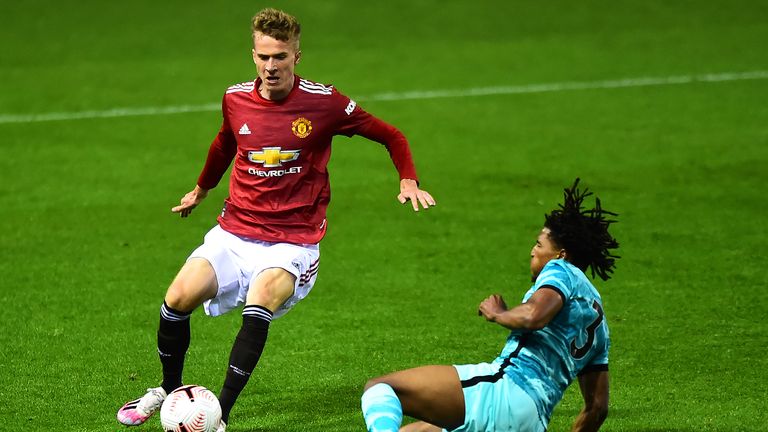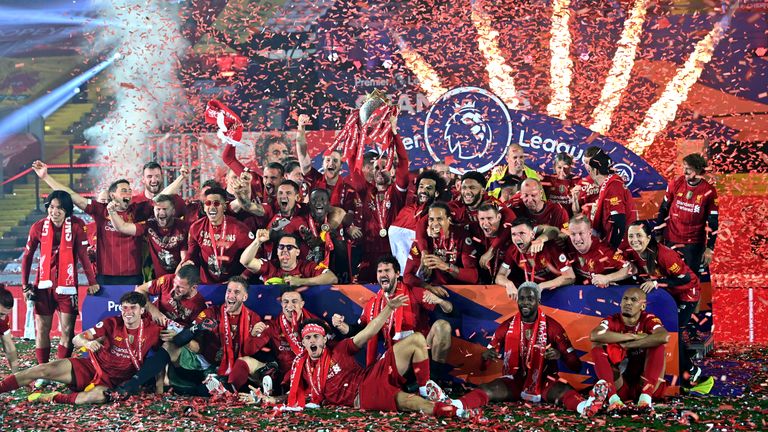“Oh f*** off.”
That was the reaction from ex-Liverpool defender Jamie Carragher to news that discussions about a new European Premier League were cantering along – and that his former club was involved.
Carragher isn’t alone in his outrage.
There is a disconnect between the desires of fans and of the billionaires who run certain football clubs, including American John W Henry in the case of Liverpool and the Glazer family for Manchester United.
This detachment is more obvious with every plot where the aim is to further boost the size and wealth of the biggest and richest clubs.
Echoing his Sky Sports punditry colleague Carragher, former Manchester United and England defender Gary Neville slammed the idea as “another wound for football”.
“The big issue that I have with it, is that at this moment in time, in the middle of a pandemic and when football is on its knees at so many different levels, the idea that a $6bn package is being put together to set up a new league when lower clubs are scrambling around to pay wages and stay in existence,” he told Sky Sports News.
“If they can pull $6bn together for a European league, then they can pull together £150-200m to save the rest of football in this country. It’s obscene.”
Last week, Project Big Picture – a blueprint also marshalled along by Liverpool and Manchester United – caused outrage among the Premier League clubs before falling at the first hurdle.
The revelation that Europe’s biggest clubs are discussing a new competition will divide once more.
Why?
We are in the throes of one of the most exciting Premier League seasons in history – albeit played in almost empty stadiums – with unexpected results, shed loads of goals and no obvious title favourite.
Most fans don’t want a closed shop which means eternal predictability and no possibility of fairy tales like Leicester City’s title win in 2015-16.
Similarly, there is little to no clamour for more European club games and certainly not hundreds of games a season, many of them meaningless and the same old teams on a merry-go-round with no jeopardy.
But the super owners of these clubs care not a jot about increasing competitiveness domestically or across Europe; they would rather dominance, power and yet more money. A European Premier League would solidify this.
A statement from the Football Supporters Association summed up the distaste fans felt.
“Football in all its forms in the UK, from grassroots to the top tier, occupies far too important a place in our society, our culture and our communities to be jeopardised by an even greater concentration of wealth in the hands of half a dozen big clubs. Decisive action is now needed to protect the game we love,” it said.
The idea of a so-called European Super League has been discussed several times over the past two decades.
In recent years, the man at the centre of these talks has been Real Madrid’s president Florentine Perez. He still is that man.
No legally binding documents have been signed and there is still time for this plan to fail as previous iterations have.
But it does not mean that it will. The landscape has changed with the pandemic, talks are at an advanced stage and £4.6billion of financial backing has been promised by JP Morgan.
In 2018, when talks were ongoing about a European Super League, FIFA President Gianni Infantino said he would ban any players involved from featuring in the World Cup.
Crucially, this so-called European Premier League has apparent backing from world football’s governing body.
It could, of course, be posturing by some clubs to increase their negotiating power ahead of talks about revamping the Champions League format from 2024, scheduled for early next year
But the fact remains that there is increasing noise about new leagues, possible breakaways and secret plots involving some of Europe’s biggest clubs.
That is no mistake – these owners are seemingly so divorced from the communities which are home to their football clubs that greed has become the driving force.





